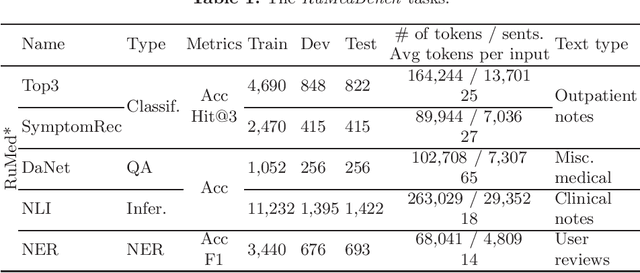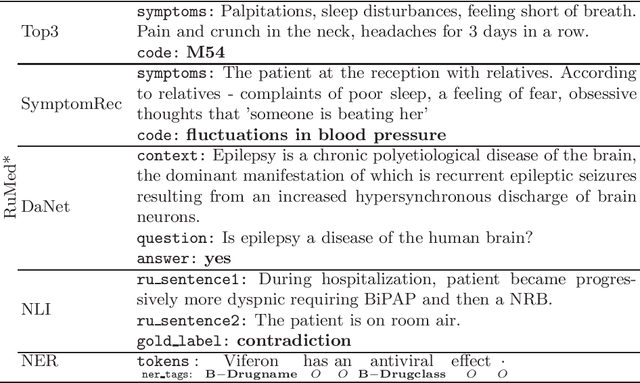Arina Reshetnikova
RuMedBench: A Russian Medical Language Understanding Benchmark
Jan 17, 2022


Abstract:The paper describes the open Russian medical language understanding benchmark covering several task types (classification, question answering, natural language inference, named entity recognition) on a number of novel text sets. Given the sensitive nature of the data in healthcare, such a benchmark partially closes the problem of Russian medical dataset absence. We prepare the unified format labeling, data split, and evaluation metrics for new tasks. The remaining tasks are from existing datasets with a few modifications. A single-number metric expresses a model's ability to cope with the benchmark. Moreover, we implement several baseline models, from simple ones to neural networks with transformer architecture, and release the code. Expectedly, the more advanced models yield better performance, but even a simple model is enough for a decent result in some tasks. Furthermore, for all tasks, we provide a human evaluation. Interestingly the models outperform humans in the large-scale classification tasks. However, the advantage of natural intelligence remains in the tasks requiring more knowledge and reasoning.
 Add to Chrome
Add to Chrome Add to Firefox
Add to Firefox Add to Edge
Add to Edge